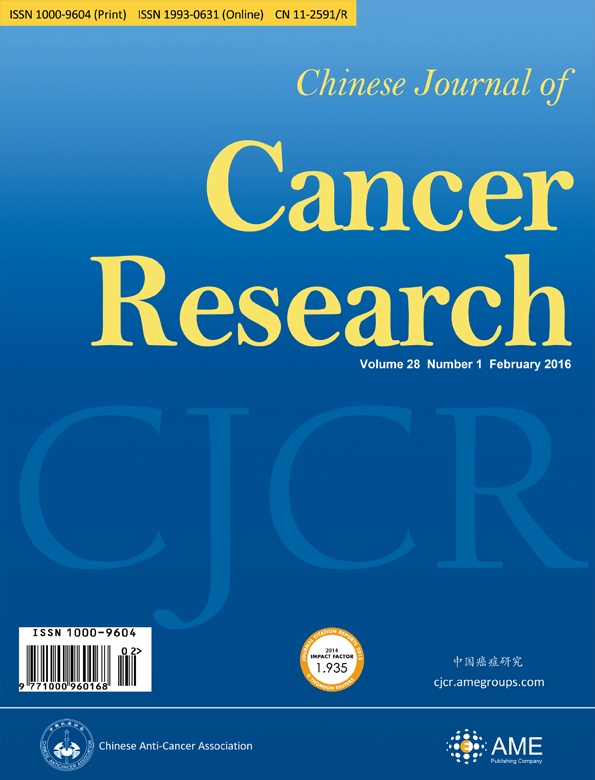机器学习辅助预测胃切除术患者的手术结果
IF 7
2区 医学
Q1 ONCOLOGY
引用次数: 11
摘要
目的癌症患者术后并发症对预后的影响。本研究旨在探讨使用机器学习模型预测胃切除术患者手术结果的可行性。方法将2017年在上海瑞金医院接受胃切除术的癌症患者按9:1的比例随机分为开发或验证队列。开发并进一步验证了一种用于预测胃切除术患者手术结果的支持向量分类(SVC)模型。结果共收集321例患者,32个特征。胃切除术后并发症的阳性和阴性结果分别出现在100例(31.2%)和221例(68.8%)患者中。SVC模型用于预测胃切除术患者的手术结果。10倍交叉验证和外部验证的准确率分别为78.17%和78.12%。此外,已经开发了一个在线网络服务器来共享SVC模型,该模型用于机器学习辅助预测未来手术中接受胃切除术的患者的手术结果,该模型可在以下网址访问:http://47.100.47.97:5005/r_model_prediction.结论SVC模型是衡量胃切除术后并发症风险的有用预测指标,有助于对不同整体状态的患者进行分层,以选择手术或其他治疗方法。可以预期,癌症信息学研究中的机器学习模型可能是可共享的,并且可以通过世界各地的网址访问。本文章由计算机程序翻译,如有差异,请以英文原文为准。
Machine-learning-assisted prediction of surgical outcomes in patients undergoing gastrectomy
Objective Postoperative complications adversely affected the prognosis in patients with gastric cancer. This study intends to investigate the feasibility of using machine-learning model to predict surgical outcomes in patients undergoing gastrectomy. Methods In this study, cancer patients who underwent gastrectomy at Shanghai Rui Jin Hospital in 2017 were randomly assigned to a development or validation cohort in a 9:1 ratio. A support vector classification (SVC) model to predict surgical outcomes in patients undergoing gastrectomy was developed and further validated. Results A total of 321 patients with 32 features were collected. The positive and negative outcomes of postoperative complication after gastrectomy appeared in 100 (31.2%) and 221 (68.8%) patients, respectively. The SVC model was constructed to predict surgical outcomes in patients undergoing gastrectomy. The accuracy of 10-fold cross validation and external verification was 78.17% and 78.12%, respectively. Further, an online web server has been developed to share the SVC model for machine-learning-assisted prediction of surgical outcomes in patients undergoing gastrectomy in the future procedures, which is accessible at the web address: http://47.100.47.97:5005/r_model_prediction. Conclusions The SVC model was a useful predictor for measuring the risk of postoperative complications after gastrectomy, which may help stratify patients with different overall status for choice of surgical procedure or other treatments. It can be expected that machine-learning models in cancer informatics research are possibly shareable and accessible via web address all over the world.
求助全文
通过发布文献求助,成功后即可免费获取论文全文。
去求助
来源期刊
自引率
9.80%
发文量
1726
审稿时长
4.5 months
期刊介绍:
Chinese Journal of Cancer Research (CJCR; Print ISSN: 1000-9604; Online ISSN:1993-0631) is published by AME Publishing Company in association with Chinese Anti-Cancer Association.It was launched in March 1995 as a quarterly publication and is now published bi-monthly since February 2013.
CJCR is published bi-monthly in English, and is an international journal devoted to the life sciences and medical sciences. It publishes peer-reviewed original articles of basic investigations and clinical observations, reviews and brief communications providing a forum for the recent experimental and clinical advances in cancer research. This journal is indexed in Science Citation Index Expanded (SCIE), PubMed/PubMed Central (PMC), Scopus, SciSearch, Chemistry Abstracts (CA), the Excerpta Medica/EMBASE, Chinainfo, CNKI, CSCI, etc.

 求助内容:
求助内容: 应助结果提醒方式:
应助结果提醒方式:


